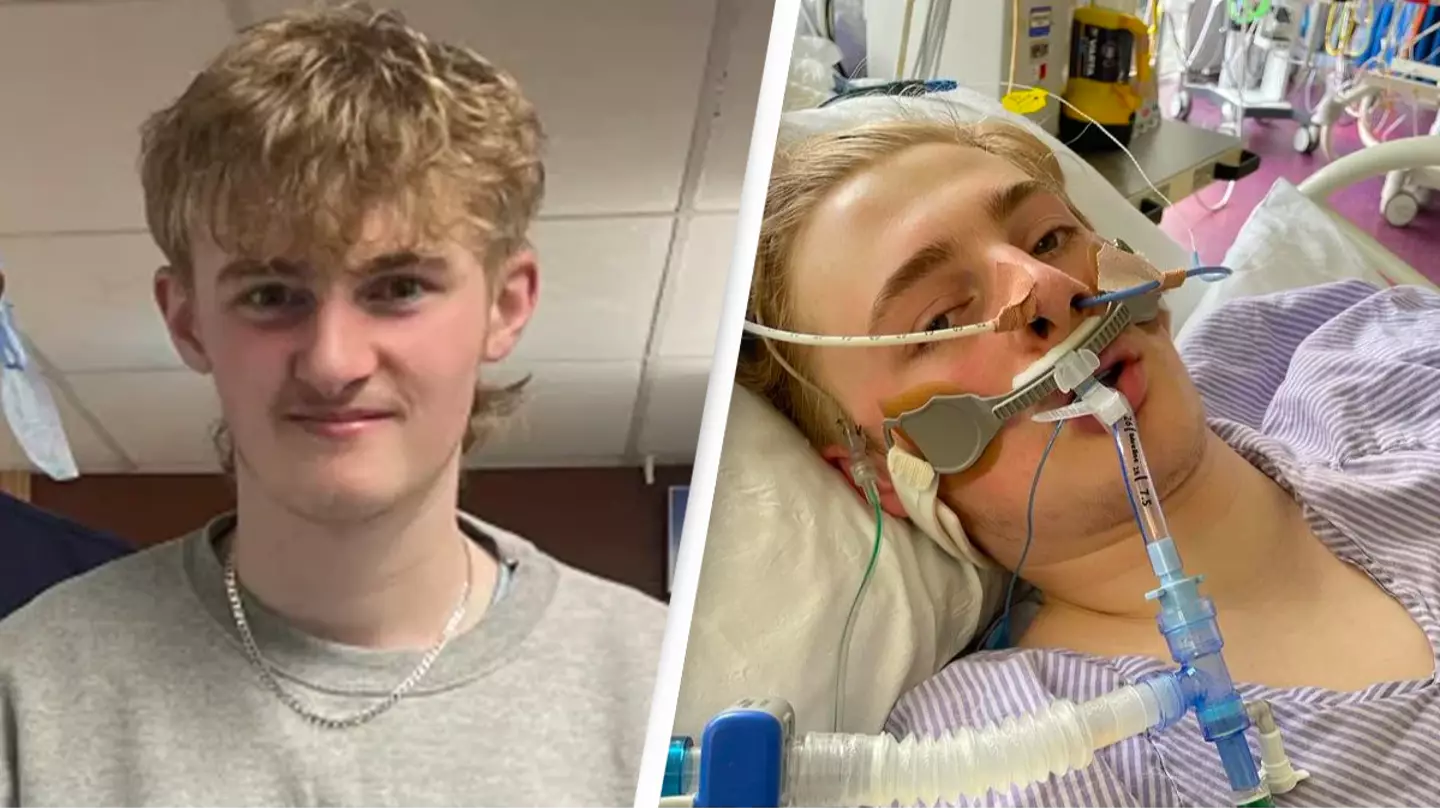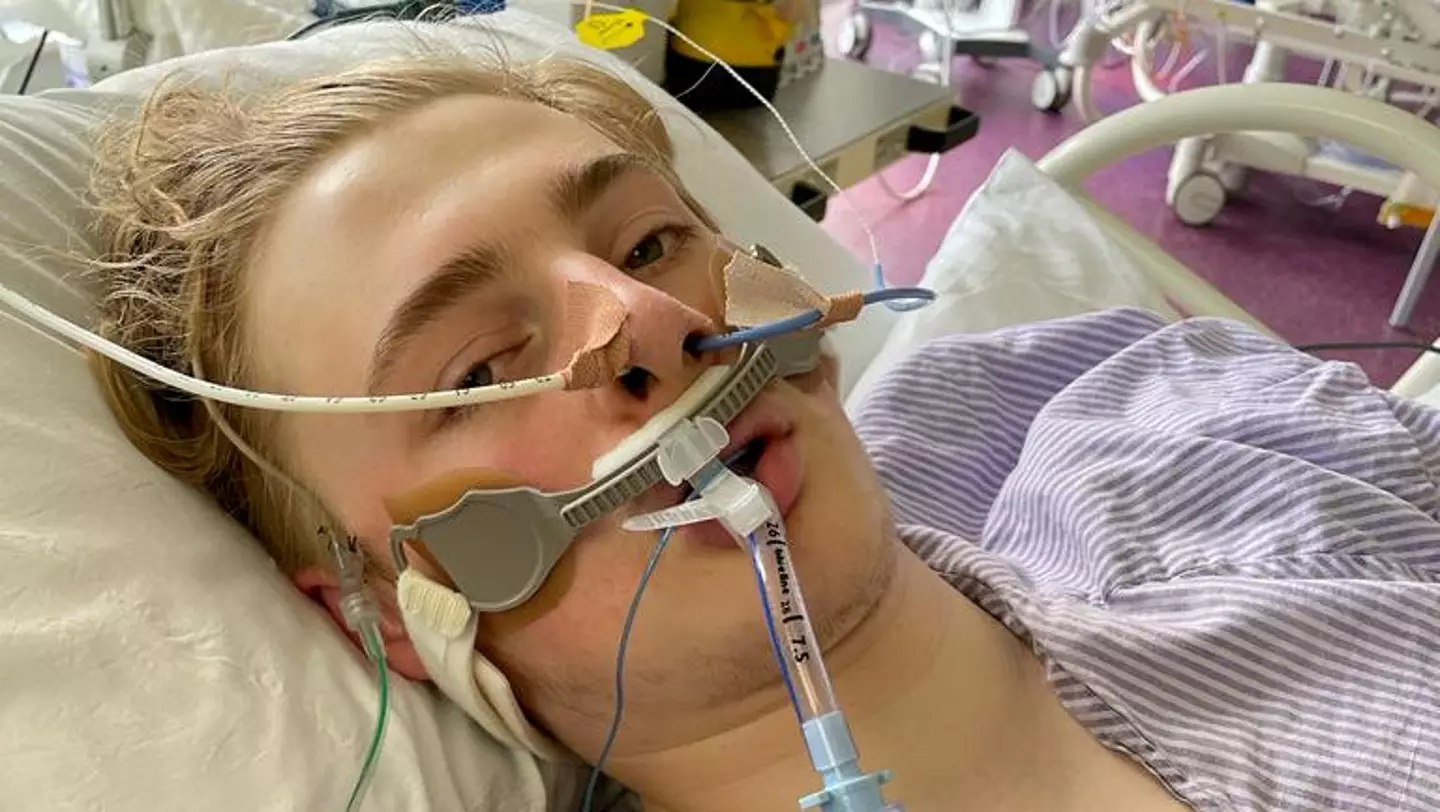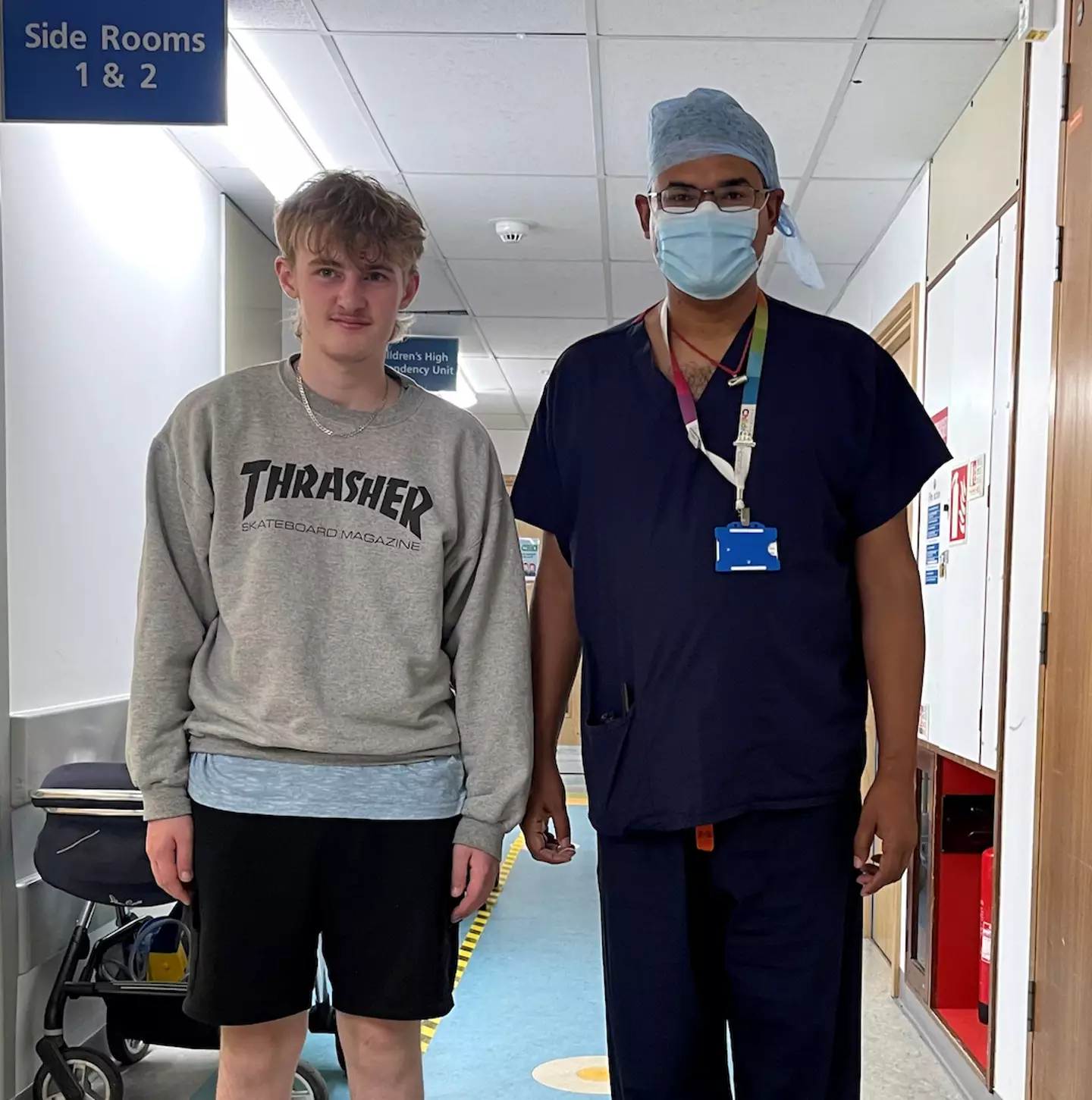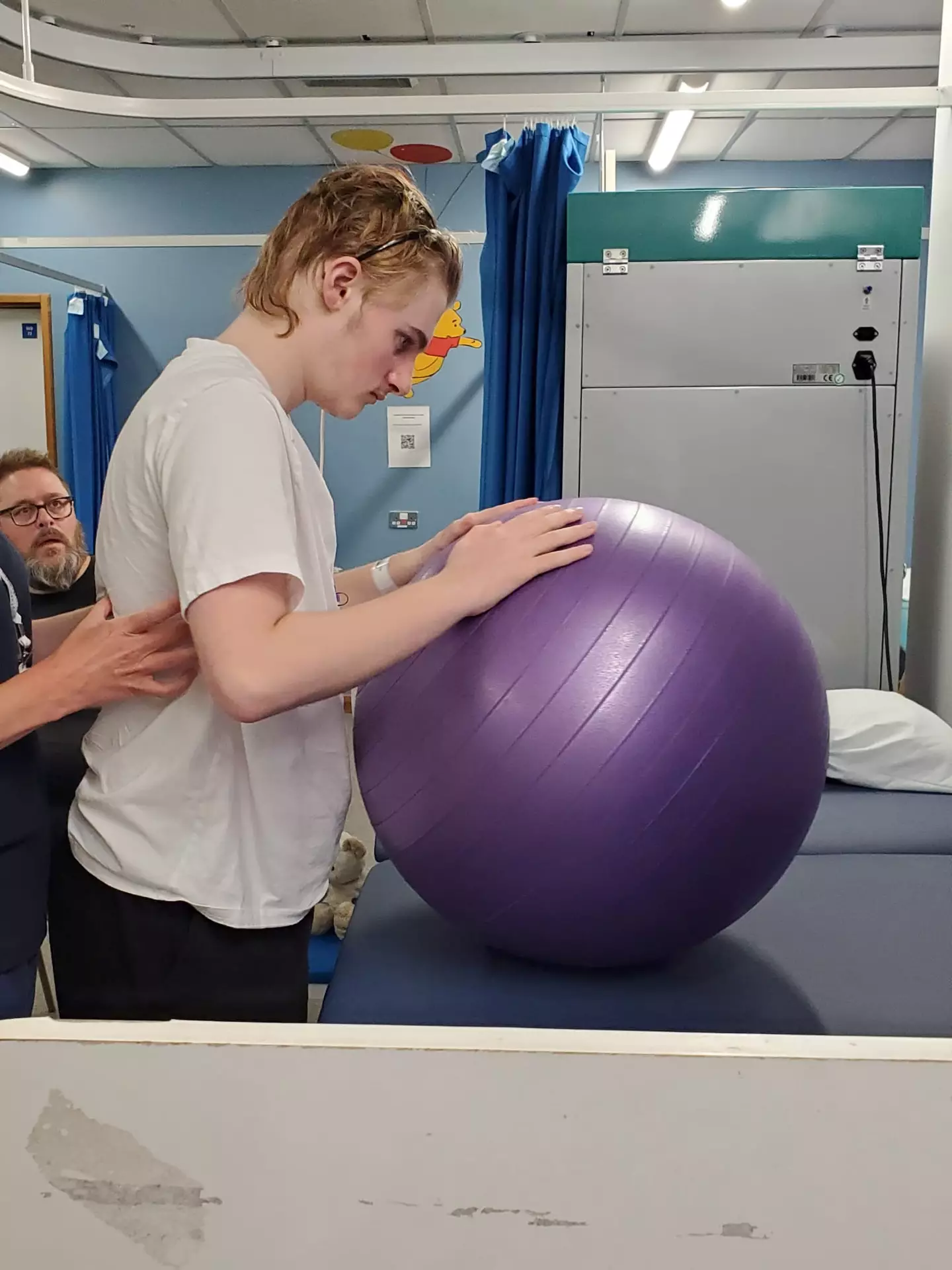
A teenager who complained of a headache was rushed into surgery in which he had part of his skull removed and stitched to his back.
Warrick Allon, 15, was at home with his mum, Krissie Thatcher and stepdad, Paul in April when the problems began.
Within minutes of complaining of a headache, he was unresponsive after collapsing and was rushed to Southampton Children’s Hospital in an ambulance.
Advert
His worried parents were warned to prepare for the worst as the teen was rushed into emergency surgery.
Warrick’s mum, from Andover, Hampshire, said: “I will remember that moment forever.
“It all happened so quickly but I remember telling his surgeon, Mr Chakraborty, that my boy wasn’t going to die.
"It wasn’t denial, it was determination – he wasn’t going to die that day.”
Scans showed Warrick had an arteriovenous malformation (AVM) - an abnormal tangle of blood vessels - that had ruptured causing a large blood clot to form and bleed on his brain.
He underwent surgery to reduce the pressure build-up and had fluid surrounding his brain drained, a blood clot and abnormal vessels removed.

The fluid that was surrounding his brain was drained and medics removing the blood clot and some of the abnormal vessels that had caused the haemorrhage.
Medics removed part of his skull and stitched it into his back during the surgery to allow for the swelling around the brain to reduce as well as preserving the bone.
Aabir Chakraborty, a neurosurgeon at Southampton Children’s Hospital, led the team in the emergency operation to reduce the pressure build-up.
Dr. Chakraborty identified ‘an unusually large blood clot’ that had caused ‘considerable pressure’ around Warrick’s brain stem – the lower part of the brain connected to the spinal cord.
With concerns about ‘imminent brain death’, the school pupil was rushed into surgery.
“The first task was to insert an external ventricular drain, a device which allows for the drainage of excess fluid on the brain, in the front of his skull to reduce the pressure in his head," the doctor said.

“Once we had secured the drain, we continued with tackling the blood clot which involved removing a part of Warrick’s skull to help reduce the swelling at the back of his head.
“We were forced to remove some of the abnormal blood vessels as they were bleeding profusely.”
Warrick defied the odds but was unable to talk, walk or move due to being in an induced coma for the next few days after the surgery.
When he woke up, it became clear he was suffering with Posterior Fossa Syndrome (PFS) – a rare condition which can sometimes develop after brain surgery to the base of the skull that contains the cerebellum and brainstem.
Rehabilitation started right away and thanks to the expertise of surgeons and a specialist neurological rehabilitation team at the hospital, he is now able to walk and communicate again and has even returned back to school part-time.

After only two weeks, he was able to sit in a chair for 10 minutes and after three months, he was eating, speaking fluently and walking slowly.
He has since undergone two further operations, with the second taking place in May 2022, one month after his emergency surgery, to remove the remaining AVM and reattach his skull flap.
The final surgery in June 2022 was to insert a shunt to treat the excess buildup of cerebrospinal fluid (CSF), otherwise known as hydrocephalus.
His dad, Dave Allon, thanked the hospital for their efforts: “What they have done is nothing short of miraculous,
"They didn’t just save his life, they have returned him home to us and we will be forever grateful for that.”
